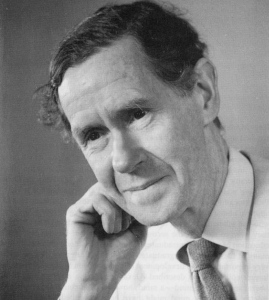A Quote by Jim Palmer
One of the most freeing discoveries these past few years in my relationship with God is discovering that God is not a belief system or a fixed set of theological propositions.
Related Quotes
God is real. God is here now. God is this moment revealed. For the most part, we are lost in the past and future world of the mind. To experience the living Presence of God in all things present, we will have come to where God is. We will have to become fully present. Otherwise we have no choice but to believe in God or disbelieve in God and neither is true, for the truth is beyond belief!
God is omnipotent; God is wholly good; and yet evil exists. There seems to be some contradiction between these three propositions, so that if any two of them were true the third would be false. But at the same time all three are essential parts of most theological positions: the theologian it seems, at once must adhere and cannot consistently adhere to all three.
Religion becomes a matter of belief, and belief acts as a limitation on the mind; and the mind then is never free. But it is only in freedom that you can find out what is true, what is God, not through any belief; because your belief projects what you think God ought to be, what you think ought to be true. If you believe God is love, God is good, God is this or that, your very belief prevents you from understanding what is God, what is true.
The erroneous economic belief in scarcity leads directly to the mistaken theological belief that God does not want us to be rich. After all, in a world of scarce physical resources, a person could achieve personal wealth only by taking wealth from another - something that a truly benevolent, loving God would never allow.
The God content of the past no longer sustains the contemporary spirit. We sense that our only hope is to journey past those definitions of a God who is external, supernatural, and invasive, which previously defined our belief. We must discover whether or not the death of the God we worshiped yesterday is the same thing as the death of God.
In the dominant Western religious system, the love of God is essentially the same as the belief in God, in God’s existence, God’s justice, God’s love. The love of God is essentially a thought experience. In the Eastern religions and in mysticism, the love of God is an intense feeling experience of oneness, inseparably linked with the expression of this love in every act of living.
You can’t run away. The past will be only too happy to chase you —- in absolute, complete, and total earnest. Do you know why? Because they’re lonely. The past and memories are very lonely things. I don’t believe in God. Because he doesn’t have a fixed form. The past certainly does exist, even in a world where the future doesn’t have a fixed form. Even if it’s being colored by misunderstandings and delusions, a person’s past can’t be anything but the truth as long as he believes in it. If that’s what you base your actions or your way of life on, isn’t that like being god?
Well, here’s a scientific question: Has anybody ever seen hard evidence? What we get is theories from our earlier prophets. Now, people who think that God invented us think that the Earth can’t be more than 6,000 years old. So I guess it’s a question of belief. My belief system doesn’t support a creator as such, as we can call God, who created us in His/Her/Its image.
Interest in religion is not necessarily interest in God. Religion in public life means a set of ideas, an ideology that has certain positions. Religion is then one more ideology among others. Religion is about God. Religion begins with a relationship to God, not a relationship to an idea. It is God who is an actor, not just individuals who have certain beliefs who are actors. God is an actor.





































